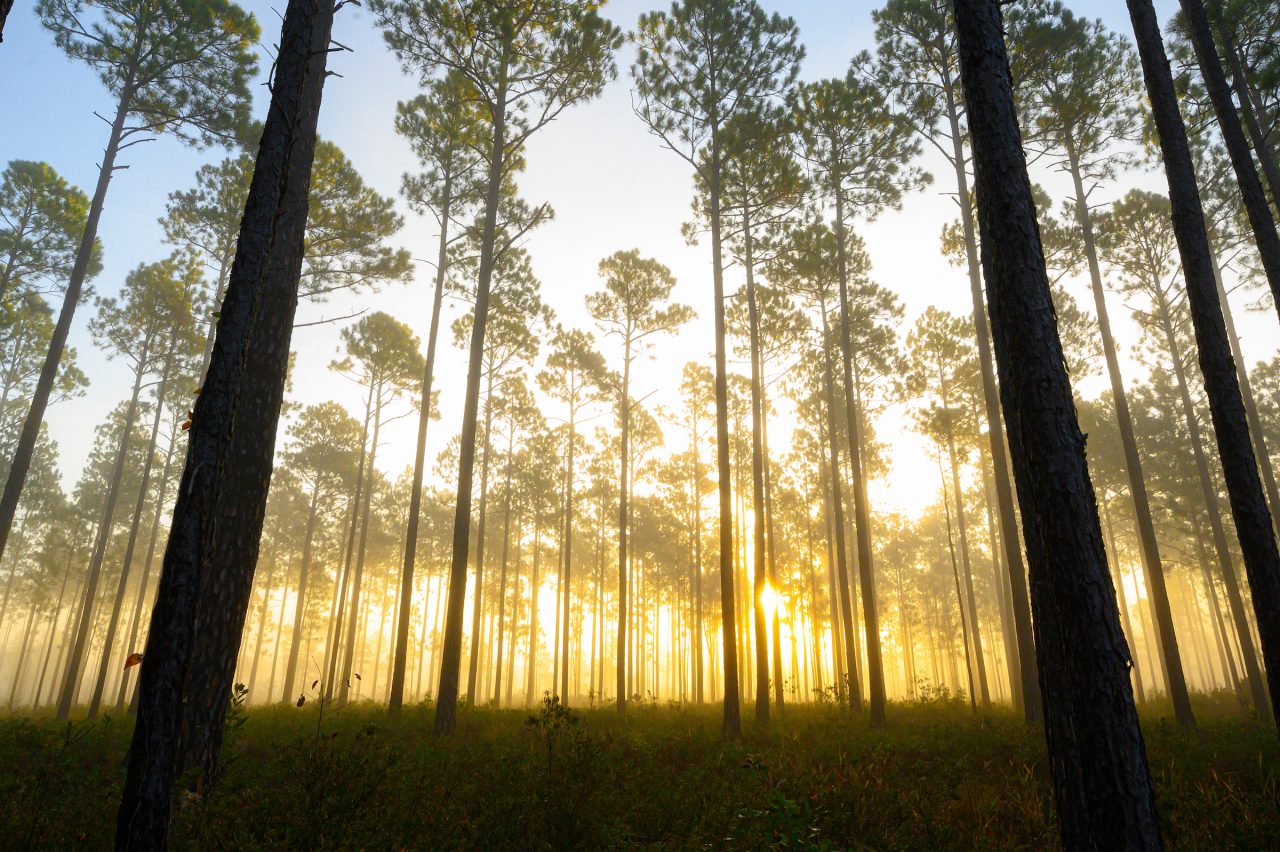
A handful of environmental initiatives in North Carolina have been awarded $170,000 in nature grants from the Duke Energy Foundation, including The Nature Conservancy, which will use its $25,000 to document the history of indigenous and enslaved communities on its preserves.
Duke Energy announced the awards Thursday. Statewide, in addition to the Nature Conservancy, North Carolina Wildlife Federation was awarded $25,000 and $20,000 to Conservation Corps North Carolina.
Supporter Spotlight
“As we move ahead with North Carolina’s clean energy transition, we remain committed to investing in organizations that help ensure future generations enjoy our state’s amazing natural heritage,” said Stephen De May, Duke Energy’s North Carolina president, in a statement. “By supporting nonprofits that are delivering meaningful results in this important work, we help preserve natural resources as well as ensure equitable program access in the communities we serve.”
The Nature Conservancy plans to work with academic researchers to document the history of indigenous and enslaved communities on its preserves in Bladen, Brunswick, Henderson, Hoke, Pender, Robeson and Sampson counties – specifically, the conservancy’s Dunohoe Bay, Calloway Forest, Green Swamp, Nags Head Woods, Bat Cave and Black River sites.
“This Duke Energy grant will provide resources to research the history of our preserves and gain an understanding of their significance to indigenous people and enslaved Africans,” said Debbie Crane, communications director of The Nature Conservancy’s North Carolina chapter, in a statement. “When The Nature Conservancy acquires land, we typically focus on its location, biodiversity, riparian corridors and the current landowners. Understanding the deeper history of these preserves is one way the Conservancy can respect and take an initial step toward honoring the native and enslaved communities who came before us.”
She told Coastal Review that The Nature Conservancy owns and manages the 16,000-acre Green Swamp Preserve in Brunswick County and believes the area is important to indigenous people.
“We have also heard that escaped slaves once hid there. We want to establish that history and acknowledge it. The Green Swamp is also a good example of the role that Colonialism played in even naming land features. It was named after John Green, an early white settler of the region who had property on the Swamp’s edge,” she said.
Supporter Spotlight
Over the last decade, the conservancy has received more than $1.2 million in Duke Energy Foundation funding.
“Duke Energy has been a valued partner in our work throughout North Carolina for more than a decade,” Crane continued. “Such year-in, year-out continuity is critical for nonprofits like ours as we help people connect with nature.”
The Wildlife Federation plans to use the funding to mobilize 1,200 volunteers to restore habitat in urban and rural communities that are historically marginalized and more likely to experience negative impacts of climate change. By removing 75,000 pounds of litter and planting 3,500 trees and pollinator plants, the Wildlife Federation said it will restore habitat, improve water quality, sequester carbon and lower urban temperatures.
The Conservation Corps grant is to be used for a new community weekend program to introduce youth to local natural areas, conservation and camping. Young people are to work on projects that preserve parks and trails in or near their communities while they learn about environmental stewardship.
Regional awards include the following:
- $25,000 to Cleveland County for the planned Lawndale Park along the First Broad River on Main Street.
- Sylvan Heights Bird Park in Halifax County was awarded $15,000 to extend a nature walkway.
- Wake’s The Conservation Fund, Raleigh, Walnut Creek Wetlands Community Partnership, and Rochester Heights and Biltmore Hills neighborhoods received $15,000 to restore native wetland habitat and improve access to the Walnut Creek Wetlands Park, providing more equitable park access for the historic African American neighborhoods.
- TreesCharlotte in Mecklenburg County received $20,000 to support a citywide tree planting program.
- Triangle Land Conservancy received $15,000 for the Good Ground Initiative to permanently conserve prime forest and farmland while providing farmers of color with access to affordable land in the Triangle region.
Since 2015, the Duke Energy Foundation has awarded more than 150 nature grants in North Carolina totaling nearly $7 million, investing in and working beside environmentally focused community partners to protect and increase access to the state’s natural resources.
The Duke Energy Foundation is funded by Duke Energy shareholder dollars. More about the foundation can be found at duke-energy.com/foundation.







